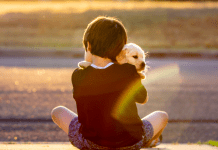Whew — I have to admit, I attempted to write this post yesterday, and simply could not.
Like many of you, I found the news about the loss of Kobe Bryant, his daughter, and 7 other people overwhelmingly sad. One was a friend’s former baseball coach. Another was a friend’s childhood best friend and her daughter.
I had to take a minute to process my feelings. I cried more yesterday than I have in a very long time. Once I did that, however, I started to worry about how a story like the helicopter crash in Calabasas would affect my children. My boy is 5, and one of his favorite games is what I like to call “Terrible Things Scenarios”.
“What happens in a plane crash, Mommy?”
“What do we do if a thief breaks into the house?”
“Could our neighborhood catch on fire?”
It’s a bit nonstop, and I’m not always graceful in handling it. Some days, with my anxiety, it’s the best I can do to tell him that the terrible thing he’s come up with in his head and needs to talk out with me simply isn’t going to happen to us. That he doesn’t have to worry about it.
The sad truth is that bad things happen, and we cannot always see them coming.
So I pulled together some advice from the experts, with links, so that you can feel prepared in initiating or having these conversations. I hope they help! They’ve definitely helped me.
 Be Honest
Be Honest
Deborah Serani Psy.D. says to be clear and provide the basic facts. This is especially important if the loss you are dealing with is a personal one; but even if you’re just sad because something sad happened, being honest helps a child understand and empathize with your pain.
“Will You Die, Too?”
This question scares parents and it’s easy to understand why. Yes, we all die, but thrusting that concept upon a child is pretty heavy stuff. Keep things short and clear. “Grandma got sick, and after a while the sickness got worse, and unfortunately she died. We are really going to miss her, and we should spending some time talking about her and the wonderful memories she left with us.”
With the death of a celebrity, the same question can still come up. Have the conversation and tell the truth. “Well, while none of us live forever, I’m looking forward to a wonderful long life with you. How about we talk about all of the other people you have around you, too, and how lucky we are to have them here now?”
It’s OK to Say “I Don’t Know”
It’s also far better to admit there’s something you don’t understand than to attempt to “make up” an answer to appease a child’s worries.
“Kids are very concrete in their thinking,” says Candace Ray, director of the Lighthouse for Grieving Children, “so euphemisms that soften the news for the rest of us make it very confusing for them.”
By attempting to lighten the load your child carries, you might leave them more worried than ever. Say “I don’t know,” and move on.
Don’t Neglect Yourself
Being strong for your children does not mean you don’t get to feel sadness, too. Practice self care. If you need to lie down, lie down. Go for a walk.
This piece from the Child Development Institute offers some wonderful additional guidance on how to talk to your child dependent upon their age or your religious beliefs.
Sesame Street also offers some wonderful books and activities to aid with these talks!



















